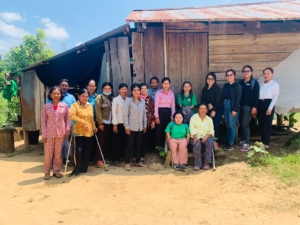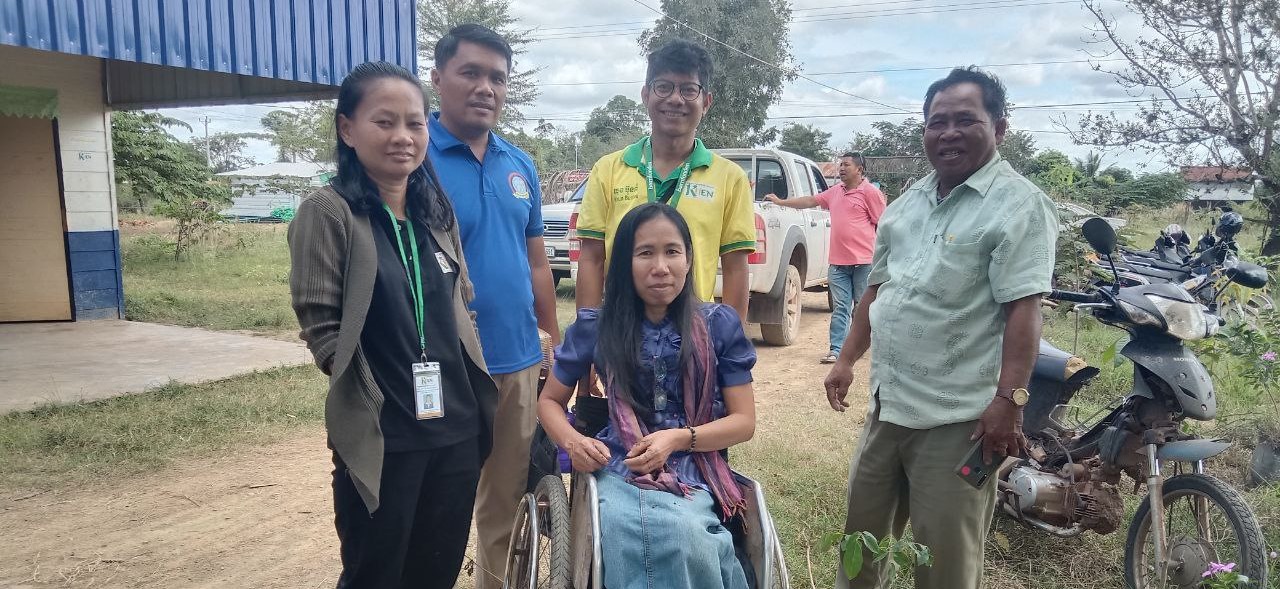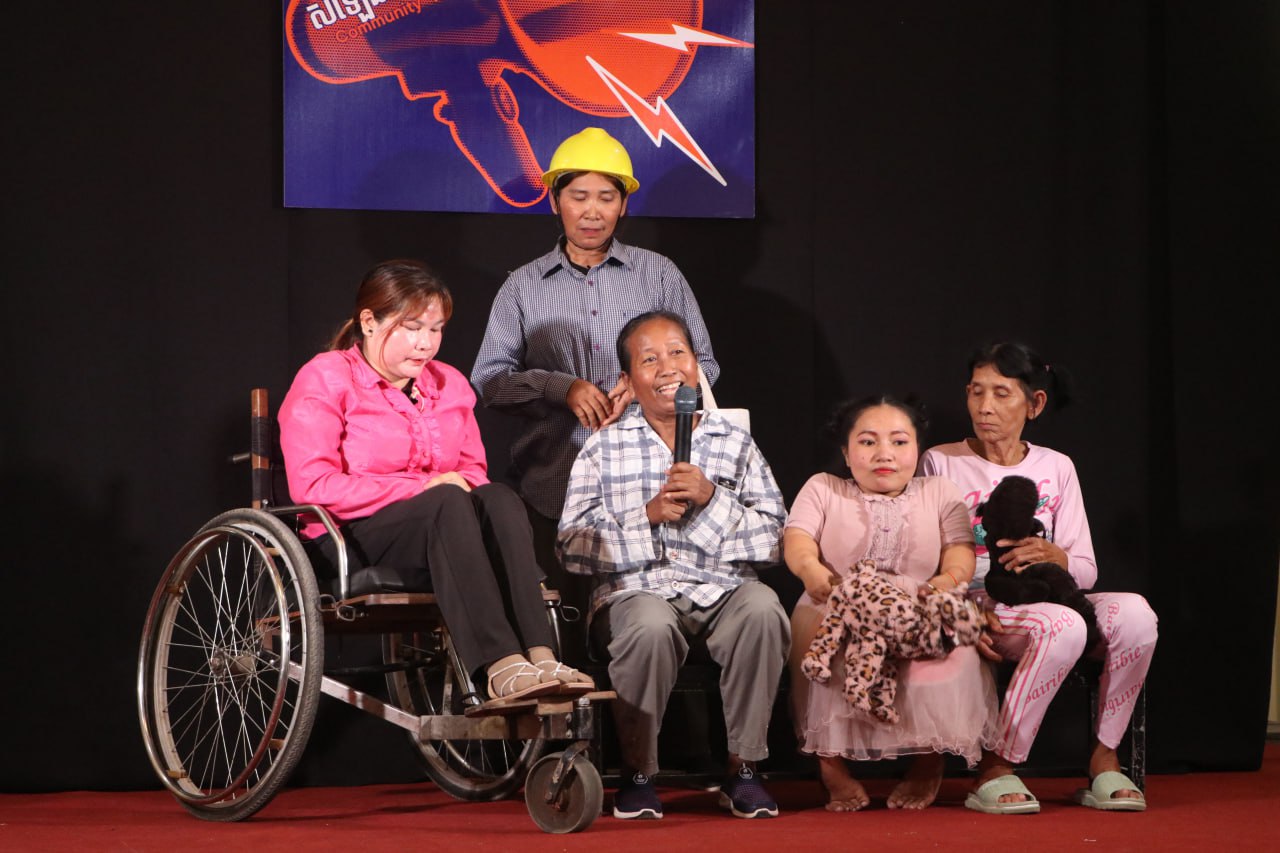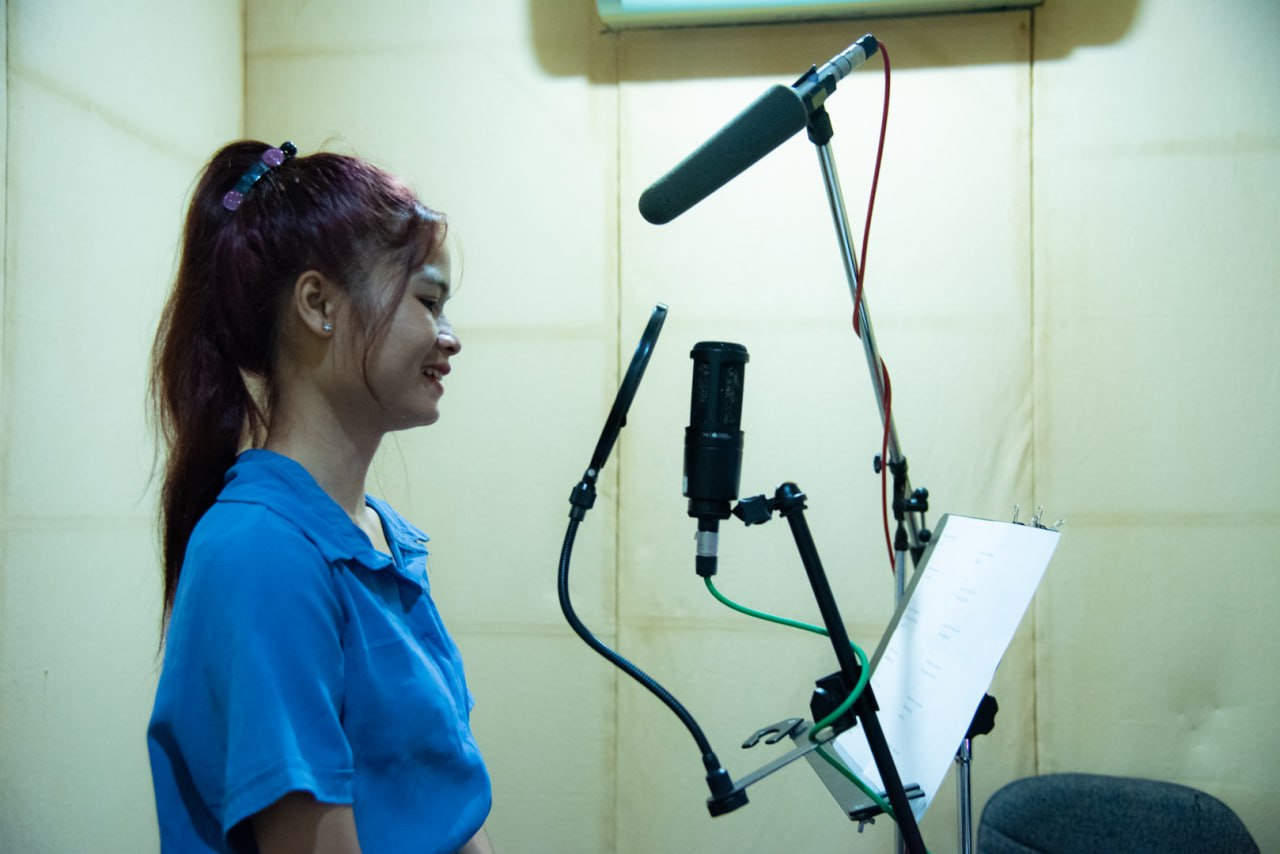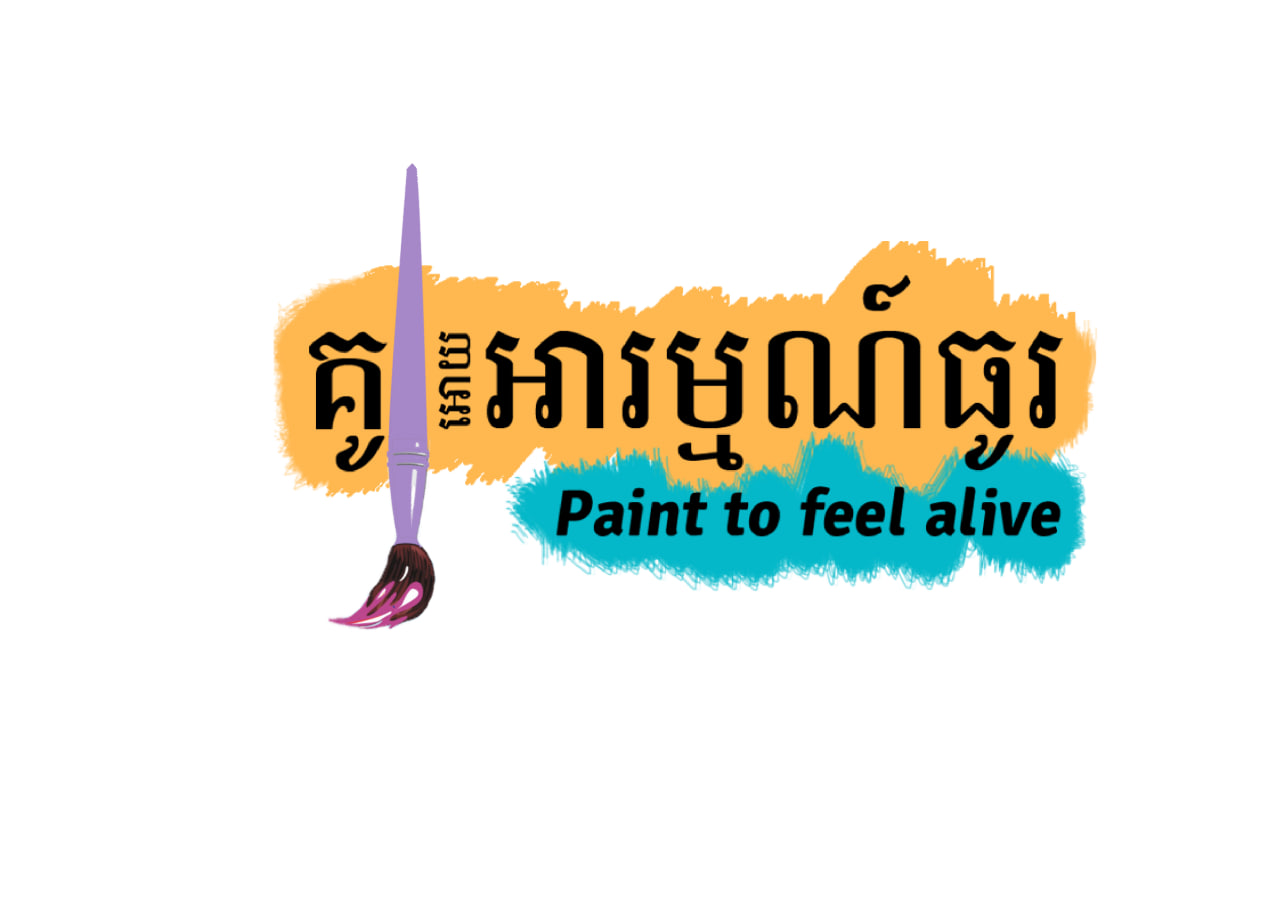Making the greatest effort for those farthest behind
by Saophorn Phoeng, Linking, Learning and Amplifier officer for Voice Cambodia
During a monitoring visit, the Voice Cambodia team traveled deep into some of the remote villages that were most challenging to reach. They visited the rightsholders and community where WWD-LAN and KHEN are working. With the help of Ms. Kimsan, the Program Support Coordinator of KHEN, we reached the Ry village in the Samlout district, Battambang province, located in the northwestern part of the country.
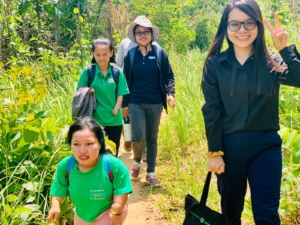
Many of the communities we visited have little access to essential services like health clinics, schools, and markets. The roads are rough and become muddy and impassable. Amidst the challenges, the people we met were warm, welcoming, and gracious hosts. They were happy that we had come to listen to their stories and understand their situation.
Ms. Marn Sokhom faced various forms of discrimination and felt demotivated in her life. Even with such challenges, she was able to earn money to support her family while studying at university. She postponed her studies for a year due to poor health but eventually returned to school to continue her classes. She also teaches English to children and enjoys spending time with them. As a volunteer with KHEN, she has developed her skills, knowledge, and experience, which has empowered her to overcome discrimination and barriers and engage in social work.
“We felt excited and happy because now my family respects my decision, and I can go and join other events and training wherever we wish to. People in the village thanked me when I organised the meeting and training with the local authority. This helps me prove I am capable and could do it, so provide us the chance for that,” said a family member.
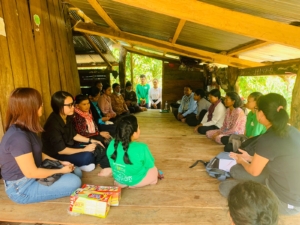
They spoke out against discrimination and bullying, which they had faced due to their disabilities. For example, people mocked their appearance, made fun of them, and made them feel useless because they were blind. Family doesn’t believe in them or support them in going to work, education, or participating in a society where they think they are more vulnerable and ashamed. Despite this, the women lived fully and did not let this behavior stop them from being their selves. Many told memories and stories of struggles to defend their rights against discrimination and cope with their way of life.
“Being alone makes me vulnerable, fearful, and avoidant. I could do that to evade my fears and worries. I, too, feel lonely and alone. WWD-LAN changed my mind; we have something in common, and they understand me and my difficulties, which are hard to express to everyone, including my family. I can finally contribute and express myself. I want to tell my family I can participate and do what they think I can’t.”
We heard many powerful testimonies on the importance of these communities, and we feel honored that the communities welcomed us into their homes and shared their stories. I believe that through this experience and the project with Women with Disability Network, the capacity of women with disabilities to be more assertive in leadership, advocacy and networking can be strengthened. In addition, this can help them represent themselves and raise their voices against any misconduct against them or discrimination they face. Sharing their narratives contributes to the advocacy by discussing what we learned and how we can apply these lessons to have a maximum positive impact.
